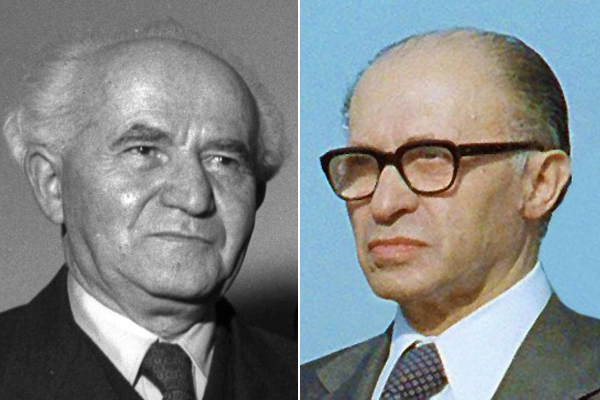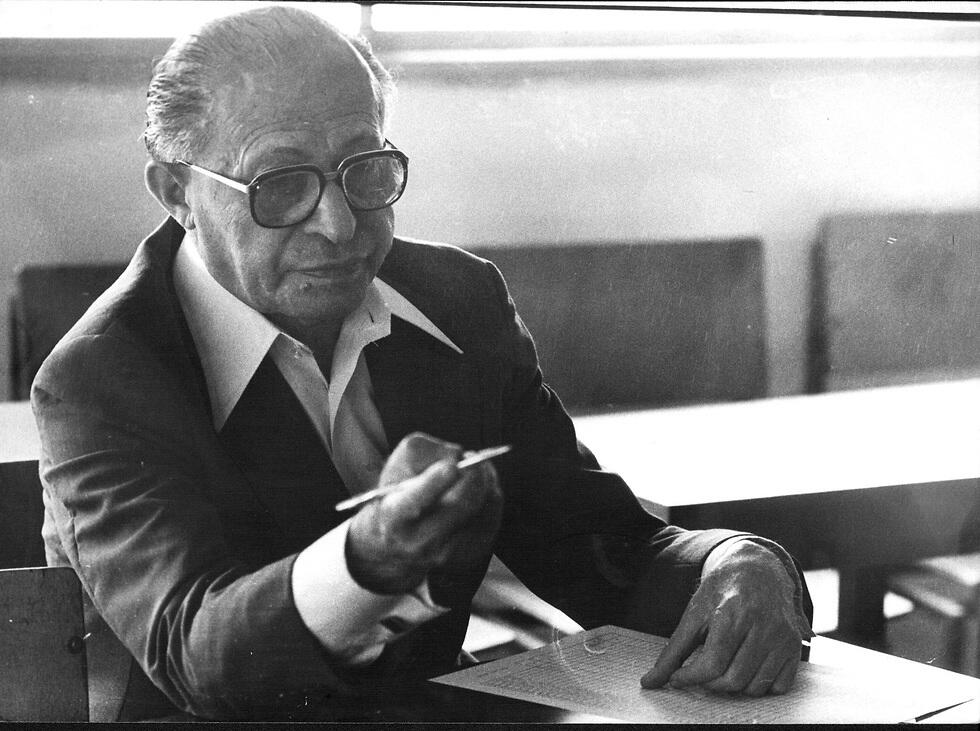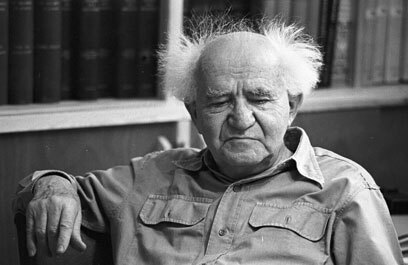Getting your Trinity Audio player ready...
David Ben-Gurion has always been a big part of my life as an Israeli and as a journalist since I was a teenager and up until the day he passed away. Hard to believe that last week was the 48th anniversary of his passing.
I grew up in south Tel Aviv, an area that was under the leadership of the Etzel or Irgun, a Zionist paramilitary organization that operated in Mandatory Palestine between 1931-1948.
This organization was oppressed by the political establishment led by the Yishuv, which was a body of Jewish residents in the Land of Israel prior to the establishment of the State of Israel in 1948. The oppression included the use of force and cooperation with the British Mandate.
Israel's first Knesset meetings were a testament to the most bitter conflicts between Ben-Gurion, part of the then-Israeli establishment, and Menachem Begin, the commander of the Irgun whose actions against the British Mandate accelerated the official formation of the State of Israel.
The animosity between these two had eventually come to an end in 1967, on the eve of the Six-Day War. Begin, who was then the opposition leader, came to Prime Minister Levi Eshkol and suggested that he invite his bitter rival, Ben-Gurion, to join his government to serve as his deputy or defense minister.
That's when their relationship took a turn for the better. I witnessed how Ben-Gurion came to the Knesset, entered the buffet and started looking for Begin. How the Knesset ushers tracked down Begin to tell him Ben-Gurion invited him for a conversation, of which they had many but unfortunately were never recorded and got lost in history.
One day, in February 1969, at the Knesset buffet, I saw Begin alongside his chief of staff Yehiel Kadishai holding a brown envelope with the words "State of Israel" inscribed on it. My curiosity led me to find out the letter's content a few days later. It was a copy of a letter addressed to Begin, in which Ben-Gurion slammed Eshkol.
"I opposed your way before the establishment of the country and sometime after that, the same way I opposed Ze'ev Jabotinsky (who was a Russian Jewish Revisionist Zionist leader)," Ben-Gurion wrote to Begin. "But, I've never had a personal grudge against you and as I got to know you more over the last few years — I've learned to cherish you."
Begin's reply to Ben-Gurion was quite similar — besides the warm compliments for Ben-Gurion's wife and her infinite wisdom. "I rejected few of your viewpoints, and I opposed things you did or ordered to do before and after the establishment of Israel. And when I look back at those days, I'm convinced that my opinion about those things was correct and justified."
Ben-Gurion, who was undoubtedly always destined for great things, has made two mistakes in his life: distancing himself from Jabotinsky and distancing himself from Begin before Israel's establishment and in its early years.
They could have been, perhaps even meant to be, the best of partners, and it goes without saying who lost out the most.




